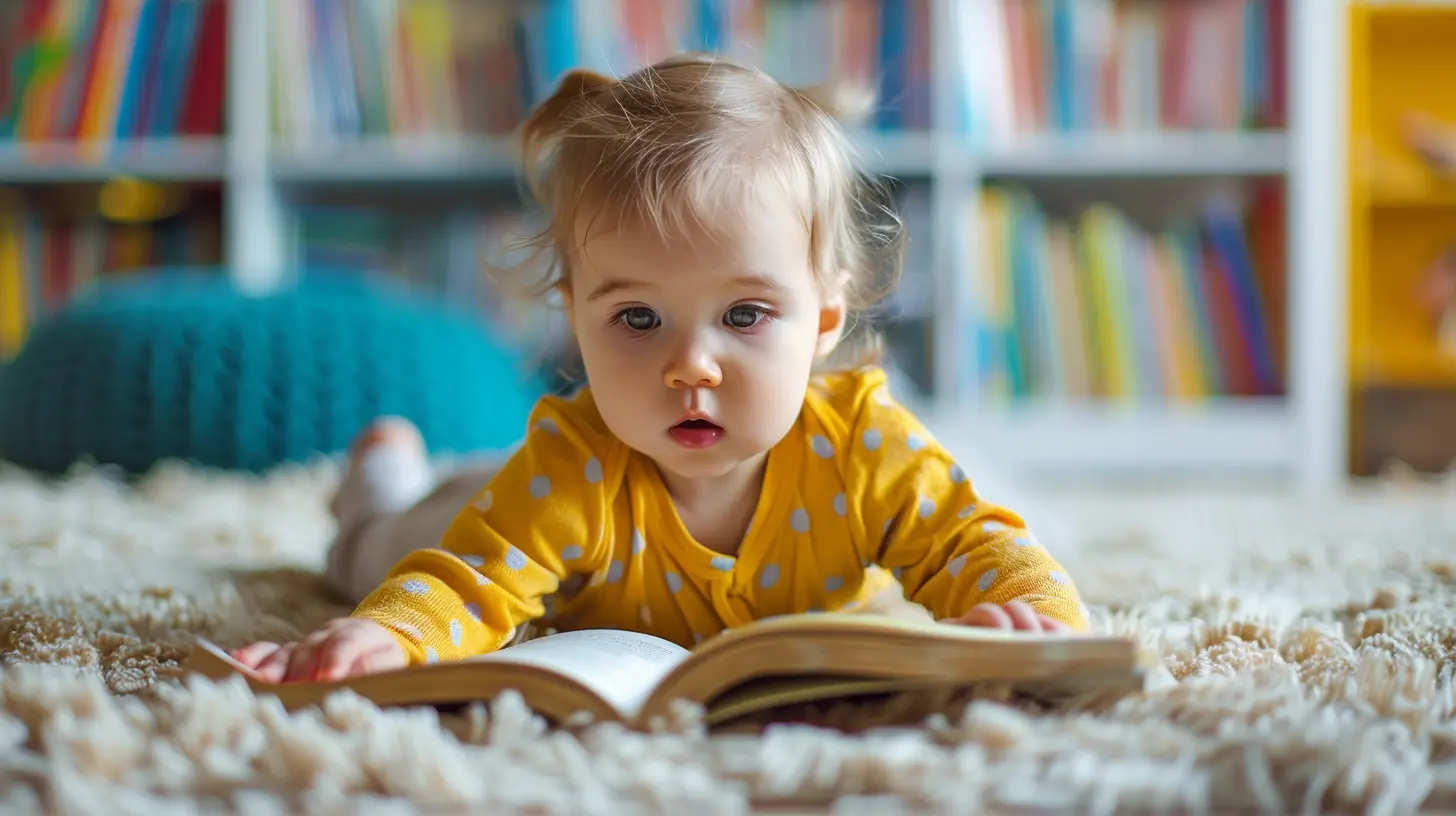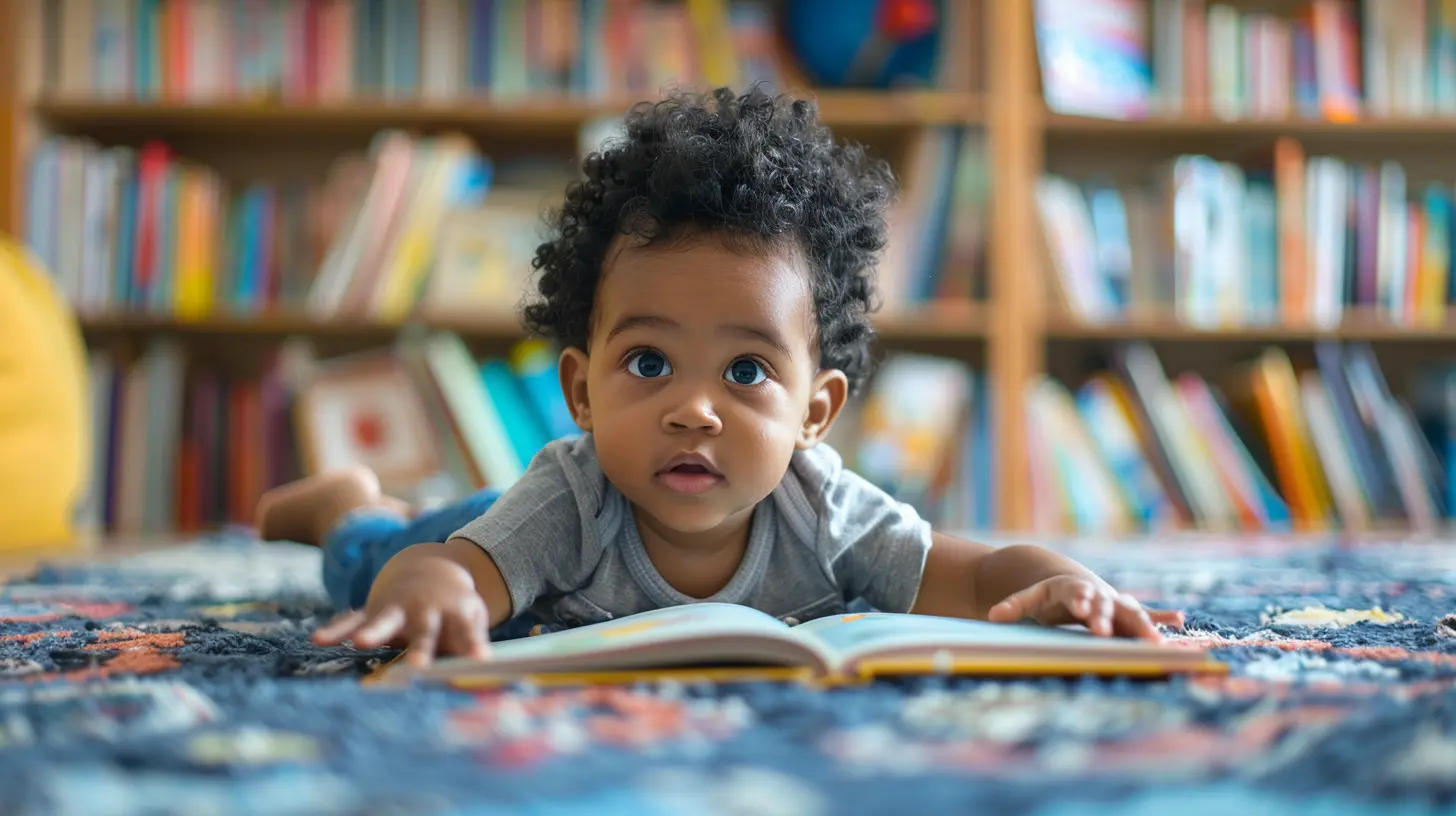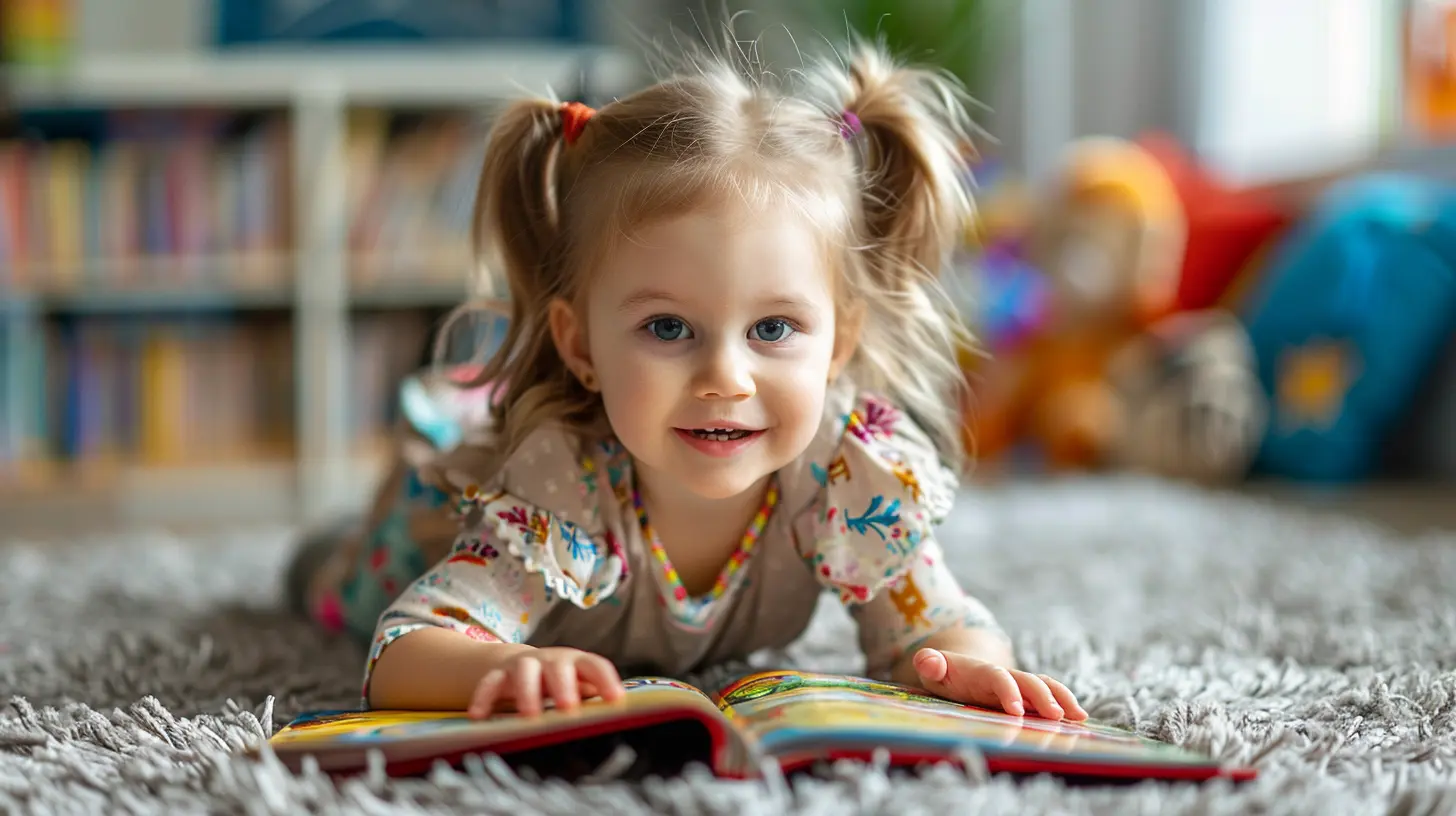The Science Behind Early Childhood Literacy
2 June 2025
If you’ve ever watched a toddler point to a picture book and babble away like they’re reading aloud, you’ve probably wondered just how early kids start learning to read. The truth is, long before a child picks up their first book or recognizes a single letter, their brains are already laying the groundwork for literacy. Surprising, right?
In this article, we're diving into the science behind early childhood literacy—how it develops, why it's crucial, and what we (as parents, educators, or curious humans) can do to nurture it from the get-go.

What Exactly Is Early Childhood Literacy?
Let’s break it down. Early childhood literacy is more than just reading ABCs or sounding out simple words. It’s a whole process that begins in infancy and includes everything from listening and speaking to understanding and eventually reading and writing.When we talk about literacy in young kids, we're really talking about "emergent literacy"—those foundational skills that develop naturally through everyday interactions, long before formal schooling begins.
Emergent Literacy: The Building Blocks
Here’s the cool part: Babies are born ready to learn language. Their brains are wired for it. From the moment they hear your voice, their little neurons are firing and forming connections. These early interactions play a massive role in future reading skills. Emergent literacy includes:- Oral language: Talking and listening, which leads to vocabulary growth.
- Phonological awareness: Understanding that words are made of sounds.
- Print awareness: Recognizing that letters and words have meaning.
- Letter knowledge: Being able to identify letters and their associated sounds.
All of these work together like ingredients in a recipe to cook up strong literacy skills later on.

The Brain Science Behind It All
Alright, let’s nerd out for a second. The human brain is fascinating. By age three, a child’s brain is about 80-90% developed. That means the early years are a critical period for learning language and literacy.Brain Plasticity and Early Learning
Have you ever heard of "brain plasticity"? It’s the brain's ability to change and adapt based on experiences. Young children have super plastic brains, meaning they're more responsive to learning stimuli. Positive interactions—like reading, singing, and talking—literally shape the structure of their developing brains.The Language-Literacy Connection
Language is the backbone of reading. Kids who grow up in language-rich environments—where adults read aloud, have conversations, and encourage questions—tend to develop stronger literacy skills. Why? Because they’re constantly being exposed to new words and ideas.Neuroscience shows that when a baby hears spoken language, multiple areas of the brain light up, including those responsible for sound processing, memory, and emotional bonding. Over time, this auditory input gets stored and used when they start decoding written language.
In short? A chatty, affectionate environment equals a thriving brain.

Why the Early Years Matter So Much
Think of early childhood as the soil in a garden. The richer and more nurtured it is, the stronger the roots (aka literacy skills) will grow. Research consistently shows that early literacy success is closely tied to future academic achievement, social-emotional development, and even long-term life outcomes.The "Matthew Effect" in Literacy
Ever heard of the Matthew Effect? In the context of literacy, it means "the rich get richer." Kids who develop early literacy skills tend to keep improving, while those who struggle early often fall further behind. It snowballs.That’s why catching and supporting literacy development early can drastically change a child’s trajectory.

How Literacy Develops: From Day One to Kindergarten
Let’s walk through the key milestones and what they look like in real life.Infancy (0–12 months)
- Babies coo, babble, and respond to your voice.- They start recognizing the rhythm and tone of your speech.
- Board books with bright colors catch their attention.
What helps? Reading aloud, using expressive voices, singing lullabies, and responding warmly to baby’s sounds.
Toddlerhood (1–3 years)
- Vocabulary explodes—some kids learn up to 10 new words a day!- They start understanding simple stories and pointing to pictures.
- They might pretend to "read" by turning pages and babbling.
What helps? Labeling objects, asking questions, letting them "read" to you even if it’s gibberish.
Preschool (3–5 years)
- Kids start recognizing letters and matching them to sounds.- They understand narratives—beginning, middle, and end.
- They can retell stories and use more complex sentences.
What helps? Interactive reading, letter games, storytelling, rhyming play, and lots of praise for their efforts.
Kindergarten (5–6 years)
- Beginning reading takes off!- They can sound out words, write their name, and connect written and spoken language.
- Comprehension and fluency start to build.
What helps? Continued daily reading, encouraging writing (even scribbles), and challenging new vocabulary in fun, meaningful ways.
The Role of Environment in Literacy Development
Here’s the not-so-secret sauce: environment matters. A lot.Kids soak up everything around them. A child who grows up in a home where books are read daily, conversations are rich, and curiosity is encouraged will likely develop stronger literacy skills than one who doesn’t have those experiences.
Socioeconomic Factors
Unfortunately, not all kids start on an equal playing field. Research shows that children from lower-income families often hear millions fewer words by age three than their more affluent peers. Less exposure to books, fewer enriching interactions—it all adds up.But here's the good news: early interventions work. Simple practices like free library programs, community reading groups, and parent coaching can level the playing field.
Tips to Support Early Literacy at Home
Think you're not qualified to teach your child to read? Think again. You're actually the best teacher they could have. Here are a few down-to-earth tips to support early literacy without turning your house into a classroom.1. Read Every Day (Yes, Every Single Day)
Even 10 minutes a day can make a huge difference. Choose books that interest your child and don’t worry about reading them "right." Just have fun with it.2. Talk About Everything
Narrate what you're doing, ask questions, and listen to their answers—even if it’s just babble. That back-and-forth is gold for literacy development.3. Sing Songs and Recite Rhymes
Songs and rhymes help kids hear syllables and patterns in language, which boosts phonological awareness (a big-time power skill for reading).4. Play With Letters
Alphabet puzzles, fridge magnets, and tracing letters in sand or shaving cream—it doesn’t need to be fancy. Just engaging.5. Make Books a Big Deal
Keep books in every room, let your child choose what to read, and celebrate even the smallest attempts at "reading."6. Be Patient and Encouraging
Learning to read doesn’t follow a strict timeline. Every child’s path looks a little different. Support, don’t pressure.The Role of Schools and Early Childhood Programs
While parents and caregivers lay the foundation, early childhood education programs can make a huge impact, too. High-quality preschool programs promote early literacy through:- A print-rich environment
- Skilled teachers who understand child development
- Daily storytime and literacy-focused play
- Individualized support
Partnerships between educators and families ensure that literacy support continues both in and out of the classroom.
Common Myths About Early Literacy
Let’s bust a few myths while we’re at it:- ❌ Myth: Kids should learn to read as early as possible.
✅ Truth: Pushing reading too early can backfire. Focus on pre-literacy skills first.
- ❌ Myth: Screen time can replace reading.
✅ Truth: Educational apps can support literacy, but nothing beats human interaction.
- ❌ Myth: Only "bookish" kids like reading.
✅ Truth: There’s a book out there for every child. It’s about finding the right one.
Wrapping Up: Literacy Is a Lifelong Gift
Building strong literacy skills in the early years is one of the greatest gifts we can offer children. It's not just about reading books—it's about helping them understand the world, express their thoughts, and connect with others.And the best part? It starts with everyday moments—reading a bedtime story, singing in the kitchen, pointing out letters on street signs. These simple acts build the brain, bond families, and prepare children for a lifetime of learning.
So next time your toddler brings you the same book for the fiftieth time, smile and read it again. You're not just reading—you’re wiring their brain for a bright, literate future.
all images in this post were generated using AI tools
Category:
Child DevelopmentAuthor:

Alexandra Butler
Discussion
rate this article
2 comments
Caroline McTiernan
This article beautifully illustrates how early literacy shapes our future. It’s amazing how those early moments spark a lifelong love for reading!
June 4, 2025 at 3:51 PM

Alexandra Butler
Thank you! I'm glad you found the article inspiring. Early literacy truly lays the foundation for a lifelong passion for reading.
Miles Ward
Inspiring read! Early childhood literacy sets the foundation for lifelong learning. It's amazing how a few simple activities can ignite a child's love for reading. Let's celebrate these small moments—they're the building blocks of big futures! Keep up the great work!
June 4, 2025 at 3:47 AM

Alexandra Butler
Thank you for your kind words! I completely agree—those small moments truly shape a child's future. Let's continue to inspire a love for reading!


